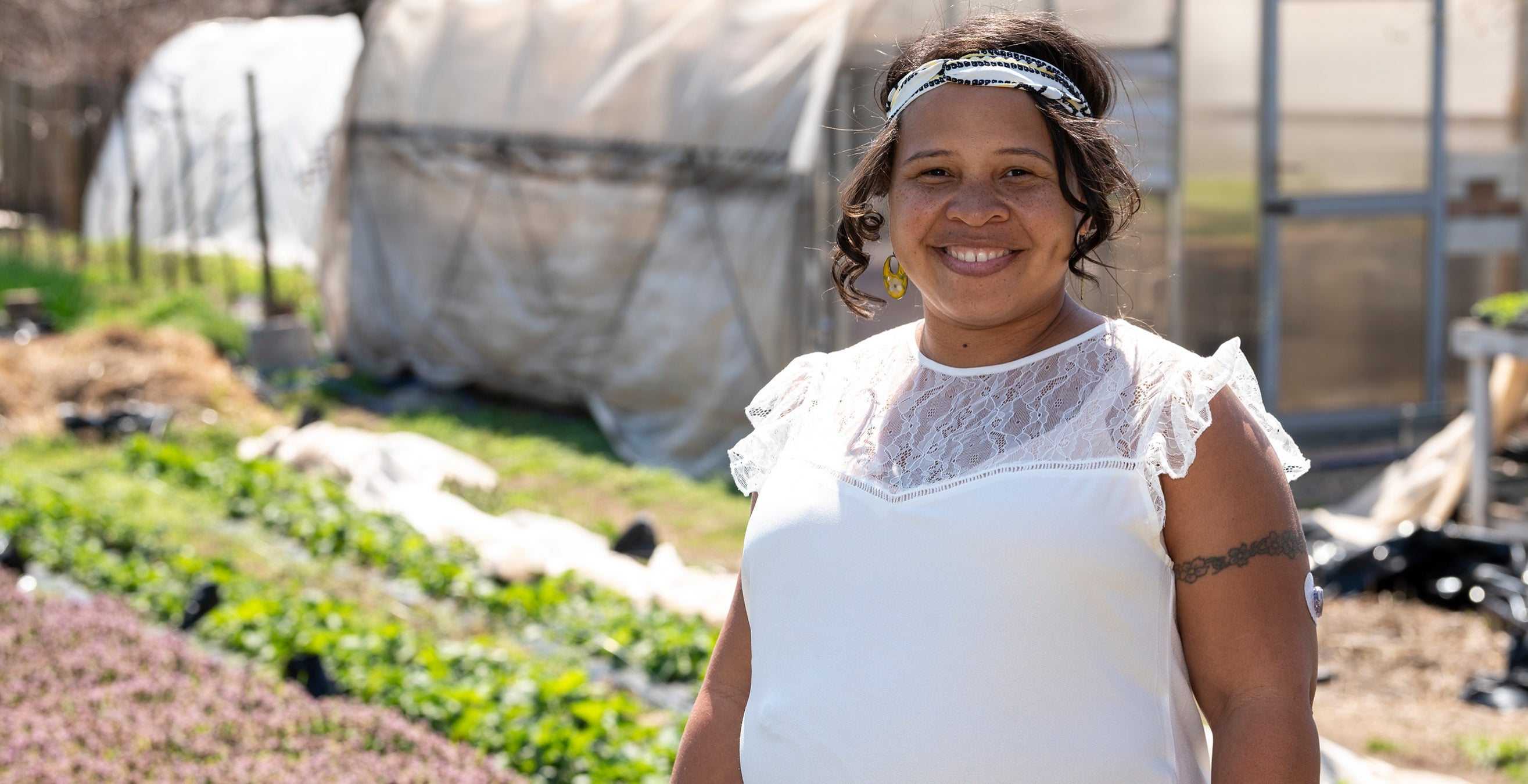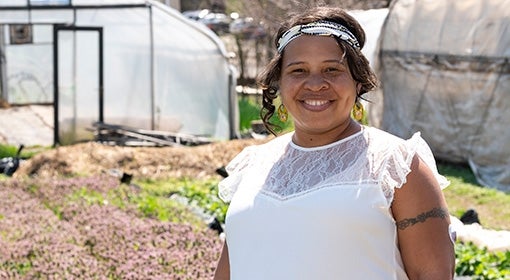Denele Hughson grew up getting her hands dirty. Together with her father and sisters in their backyard garden in Pittsburgh’s Homewood neighborhood, she regularly worked and nurtured the earth. In return, the ground gave back in abundance: corn, greens, tomatoes, green beans — “Anything you could think of,” she recalls.
At Pitt, Hughson (A&S ’08) studied political science, which she used to launch public policy graduate studies and a career in nonprofit work. Now Hughson is keeping her horticultural heritage alive, both at home with her daughter and at work as executive director of Grow Pittsburgh, an urban agriculture nonprofit that teaches and encourages people to sustainably cultivate food.
The work is about more than feeding bellies. Not only is food “the one thing we all need to survive,” she says, “but it’s also our greatest connector” — to the earth, our families, our communities and ourselves.
Pitt Magazine asked Hughson to share some her best gardening tips and green-thumb insights.
On the benefits of gardening:
COVID really highlighted the fragility of our food system and made people want to be more sustainable and self-sufficient by growing their own food. There’s been such a giant disconnect over the past 50 years or so between people and food: I’ve seen grown adults not know how a green pepper grows. Having your own garden really shows you where your food comes from — and any sort of social justice starts with having access to healthy food.
Also, we all saw that being outside was really the safest place for us all to be, especially if we wanted to gather in groups. The physical and mental health benefits of gardening have become extraordinarily apparent over these past two years. It’s an opportunity to get vitamin D, take in lipids from the soil that help fend off depression and get all the perks of being active outdoors.
On getting started growing:
How you make your garden — what it looks like — really depends on what you’re looking to get out of it. Gardens are work, so think about how much time you’re willing to invest in them. You can do it very affordably with a small plot or containers or you can take it to the next level and become an urban farmer. If you’re growing on a small scale, all you need is a good water source — if you don’t have a hose, a watering can works—a hand trowel and/or a shovel. You don’t need that much.
On building a healthy garden from the ground up:
It’s important to test your soil before planting anything to make sure there are no contaminants and see what nutrients you need. You can send it to a lab, or, here at Grow Pittsburgh, we host soil testing days for the public. If you do have contaminants in your soil, you can always plant in raised beds and containers.
Make sure you’re moving your crops around and not planting your tomatoes in the same soil every year; that way you diversify what nutrients are being used and added to your soil.
And try companion planting: There are plants that facilitate pollination by attracting pollinators and others that encourage specific plants to grow well nearby. We plant basil with our tomatoes because it makes your tomatoes taste a little bit better. Plants want to grow; you just have to give them the right home to do that.
On how resourcefulness can pay off:
You can garden inside — and reuse kitchen scraps! Last year, I grew potatoes in a pot on my front porch, which was really fun. My daughter really liked it. And don’t throw all your kitchen scraps away; some of them — like green onions, celery, root vegetables and cabbage — you can resprout.
Growing your own food isn’t just for the warmer months: Fall is a great time to plant your garlic. Some crops, like onions and potatoes, can overwinter. There’s a lot of flexibility.
Last but not least:
It’s okay if you’re not successful on your first try! Don’t ever get discouraged. Never look on mistakes as a bad thing; they’re something you can grow from.
Cover image: Denele Hughson visits Grow Pittsburgh's Braddock Farms location.
This story was posted on May 23, 2022. It is from Pitt Magazine’s Spring 2022 issue.





